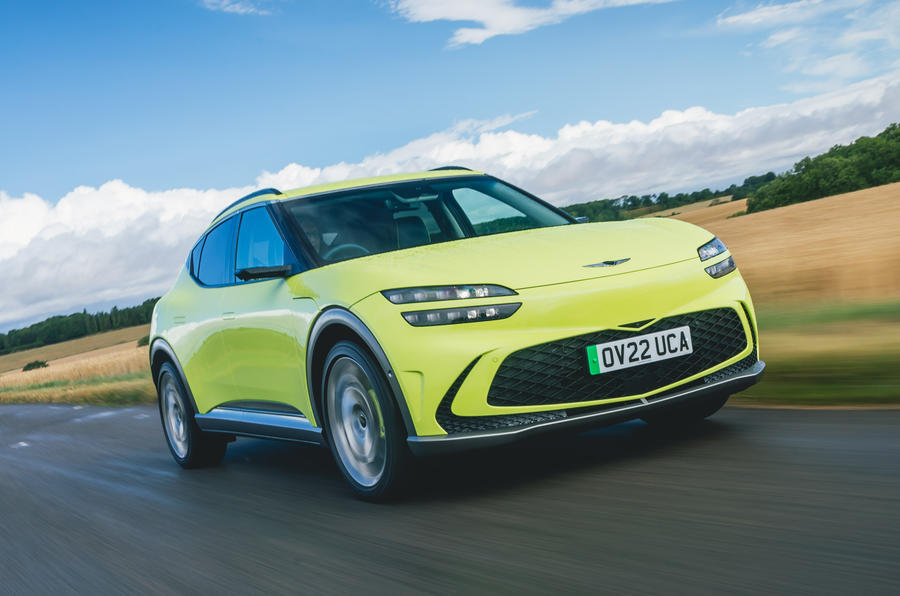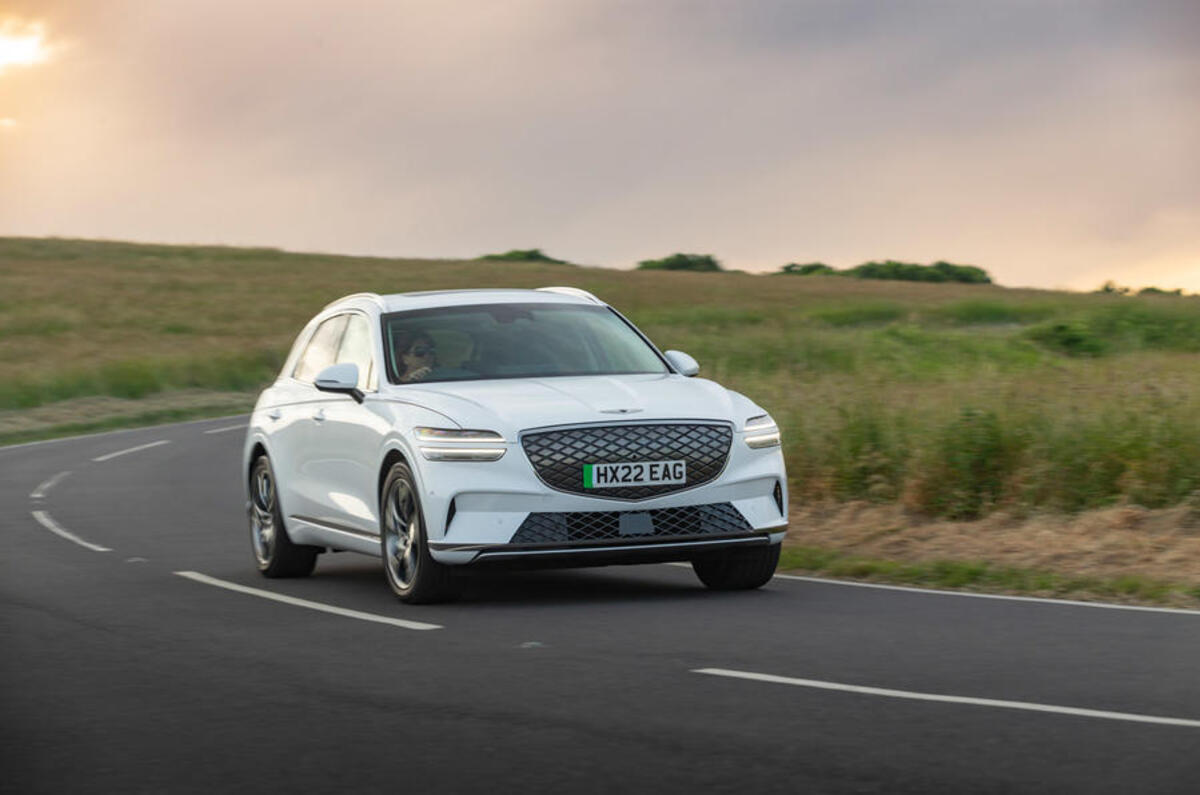Luxury car maker Genesis has begun trials of a conductive charging system to help owners of its EVs do away with having to plug and unplug their vehicles, as well as store the charging cable in the car.
The tests, which will run until June 2023, are being conducted in the premium brand’s home market of Korea. They involve 23 11kW charging pads being installed and used by 22 cars, a mixture of Genesis GV60s and Electrified Genesis GV70s. A typical home charging unit provides 7kW of power.
Described as a project “to seek opportunities to improve customers’ EV charging experience”, the system supplies power via a magnetic field. The car is adapted to direct the driver to line up precisely with the ground-mounted pad to ensure optimal charging.

This is the latest in a big push from car makers to make charging easier, faster and more convenient. If Genesis’s trials prove fruitful and it is able to keep the technology for itself and build a Europe-wide network of charging stops, it would be a big pull for the luxury car firm, in a similar vein to Tesla's exclusive Supercharger network.
Given the trials are using pads and looking to do away with charging cables, it is also viable that the technology could be set up at owners’ homes, for added convenience.
Swappable battery tech is another technology being extensively trialled by car maker Nio, which has already tabled plans to bring a network to the UK and wider Europe. This would see a depleted car battery swapped for a freshly charged one in a process that takes up to five minutes.




Join the debate
Add your comment
Sure would be a game changer for convenience as long as the efficiency losses don't out way the cost and environmental benefits of driving an electric car
And I wonder if wireless charging is more or less efficient than plugging in?
While the technology has some obvious benefits in some domains (mobile phones wireless charging is pretty common these days, but wireless charging comes in very handy for medical devices implanted in patients, such as sensors or stimulators), it's probably not very useful for cars.
There is some talk of roads that charge the cars as they drive along but this is science fiction at this stage.